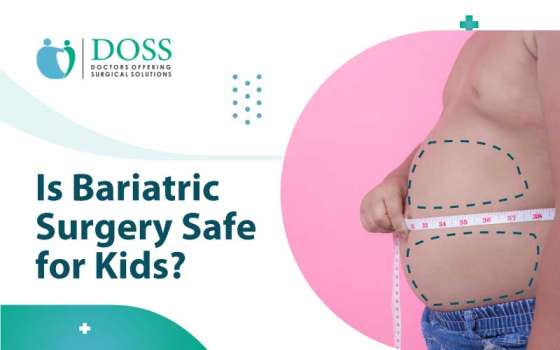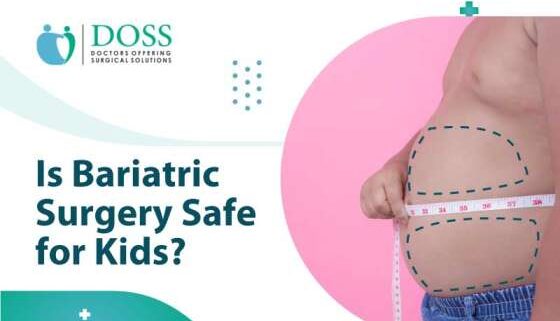Is Bariatric Surgery Safe for Kids?
BlogChildhood obesity has become a pressing concern in recent years, with its prevalence increasing at an alarming rate. As parents, understanding the health risks associated with obesity in children is crucial to safeguard their well-being. One option that might cross your mind is bariatric surgery, a weight loss procedure typically reserved for adults.
In this article, we will explore the safety and appropriateness of bariatric surgery for children and discuss the factors parents should consider before making this decision.

Overview of Bariatric Surgery
Bariatric surgery involves various surgical procedures that aim to promote weight loss by altering the digestive system. The most common types include gastric bypass, sleeve gastrectomy, and adjustable gastric banding.
These procedures are usually considered a last resort for individuals who have not achieved significant weight loss through diet, exercise, and behavioral changes.
Must Watch this Video
The Rise of Childhood Obesity
According to the World Health Organization, the number of overweight or obese children under the age of five has increased by nearly 60% since 1990. Factors contributing to this rise include unhealthy diets, sedentary lifestyles, and genetic predispositions.
Childhood obesity can lead to severe long-term health consequences, such as type 2 diabetes, heart disease, and certain cancers.
The Rationale for Considering Bariatric Surgery in Children
In some cases, traditional weight loss methods may not be effective for severely obese children. Bariatric surgery can provide significant health benefits, including improved insulin resistance, resolution of comorbid conditions, and enhanced quality of life.
However, it is typically recommended only for adolescents who have reached skeletal maturity and have a body mass index (BMI) above a certain threshold.
Also, Read- Benefits Of Bariatric Surgery
Safety Considerations
Bariatric surgery in children is generally considered safe when performed by experienced pediatric surgeons in specialized centers. A thorough preoperative evaluation is crucial to assess the child’s physical and psychological readiness for surgery.
A multidisciplinary approach involving healthcare professionals, such as dietitians, psychologists, and exercise specialists, is essential to ensure comprehensive care.
Potential risks and complications associated with bariatric surgery in children include nutrient deficiencies, gallstones, and the need for lifelong follow-up and monitoring.
Must Watch This Video-
Is bariatric surgery safe?| Dr. Neeraj Rayate
Long-Term Outcomes and Success Rates
Research has shown that bariatric surgery can be effective in achieving sustained weight loss and improving comorbid conditions in children.
However, success depends on various factors, including adherence to dietary and lifestyle changes, ongoing support, and commitment to long-term follow-up care.
Also Read-Bariatric Surgery Cost in Pune
Psychological and Social Considerations
A comprehensive preoperative psychological evaluation is necessary to assess the child’s emotional well-being and readiness for surgery. Post-surgery, ongoing support, and counseling may be required to address potential psychological challenges.
It is also essential to consider the social stigma and potential social implications associated with bariatric surgery in children.
Conclusion
Bariatric surgery in children should only be considered for those who meet specific criteria and have exhausted other weight loss options.
A thorough evaluation, appropriate patient selection, and comprehensive multidisciplinary care are vital to ensuring the safety and effectiveness of bariatric surgery in children.
Further research and ongoing evaluation of the long-term outcomes and safety of bariatric surgery in pediatric patients are needed.
Families considering or undergoing bariatric surgery for their children, seek out available resources and support networks to help navigate this complex decision-making process.


 +919011100010
+919011100010 


